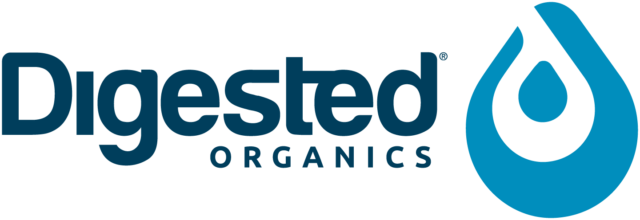The National Milk Producers Federation board voted to support the Trans-Pacific Partnership (TPP) agreement. However, voting on March 8, the NMPF board also expressed opposition to moving forward with the U.S.-EU Transatlantic Trade and Investment Partnership (TTIP).
NMPF urged Congress to take action on the TPP agreement, saying that although the 12-country agreement falls short of all NMPF trade goals, it will help U.S. dairy farmers in the future.
“Taken in its entirety, the TPP agreement is positive for the U.S. dairy industry,” said Jim Mulhern, president and CEO of NMPF. “Although it achieves less than we wanted in terms of throwing open new markets in Japan and Canada, I am particularly pleased that we did not concede to a huge surge in new imports.”
The TPP agreement also contains important provisions designed “to knock down other trade barriers, such as food safety disputes, and to challenge the growing number of restrictions limiting trade of foods with commonly-used names such as parmesan,” Mulhern said.
Despite its endorsement, NMPF said U.S. government agencies must take concrete steps to ensure the diligent enforcement of the agreement’s provisions. The NMPF resolution also urged the U.S. to establish proper enforcement measures regarding access granted to the domestic market, and monitor compliance with those measures after the TPP is implemented.
Finally, the board said the TPP market access package should not be used as a template for future U.S. trade agreements.
While supporting TPP, the NMPF board expressed its opposition to further advancing the U.S.-EU TTIP, citing the Europe Union’s refusal to remove barriers to U.S. dairy exports.
“(T)he negotiations have not demonstrated concrete progress towards addressing food safety challenges and other non-tariff trade barriers,” Mulhern said. “In addition, we remain extremely concerned” about the EU’s efforts to claw back common food names for its members. The failure to resolve these issues in the TTIP “would exacerbate the existing U.S. dairy trade deficit with the EU of over $1 billion.”
Parmesan cheese lawsuits filed
Multiple class-action lawsuits have been filed on behalf of consumers over revelations some grated Parmesan cheese products may contain higher-than-acceptable levels of cellulose fiber. Lawsuits naming Wal-Mart Stores Inc. and/or Kraft Heinz Foods Co. have been filed in federal courts in Illinois, New York, Missouri and California.
The U.S. Food and Drug Administration (FDA) allows the plant-based fiber at levels of 2 percent to 4 percent in grated cheese as an additive to prevent clumping.
However, Bloomberg News tested several Parmesan cheese products after FDA filed legal action against Castle Cheese Inc. of Slippery Rock, Pennsylvania. That action followed reports the company was using substitutes and fillers in its product, but was labeling the product as 100 percent real Parmesan. In its investigation, Bloomberg purchased and tested several major varieties of grated Parmesan cheese, finding cellulose levels of 0.3 percent to 7.8 percent.
While some class-action lawsuits are being pursued, ClassAction.org said it would not pursue additional lawsuits because Parmesan manufacturers did list “cellulose” on their products’ ingredient lists, and that the products’ labeling could be argued as “ambiguous.”
Canadian trade rules threaten New York dairy exports
U.S. Senator Chuck Schumer (D-New York) urged the U.S. Trade Representative (USTR) and U.S. Department of Agriculture (USDA) to push back against proposed Canadian trade restrictions he says threaten New York dairy exports.
Joined by Cayuga Milk Ingredients chief executive officer Kevin Ellis and board chairman Bill Morgan, who operates two dairies with about 1,400 cows in New York, Schumer said the region’s dairy producers and manufacturers needed protection from newly proposed Canadian trade barriers.
Cayuga Milk Ingredients represents 25 dairy farms in central New York. It completed a $100 million milk processing plant in 2014, and is wrapping up a $4 million expansion project to increase production capacity.
According to Schumer, the Canadian government is considering restrictions on the use of ultra-filtered milk – produced by companies like Cayuga Milk Ingredients – for cheese making. In addition, a new targeted-pricing policy could affect duty-free access for ultra-filtered milk put in place under the North American Free Trade Agreement.
Cayuga Milk Ingredients exported more than $23 million worth of milk protein isolate and ultra-filtered milk to Canada in 2015. Canadian exports are expected to generate about $30 million in 2016 gross sales, about 25 percent of the company’s total.
Dairy Business Milk Marketing Cooperative joins National Council of Farmer Cooperatives
Midwest-based Dairy Business Milk Marketing Cooperative has joined the National Council of Farmer Cooperatives (NCFC), a trade association representing America’s farmer cooperatives on policy and business issues in Washington, D.C.
Established in 2010, the Dairy Business Milk Marketing Cooperative provides milk testing verification services, market information and representation on dairy-related federal policies to its members in Wisconsin and seven other Midwestern states. Dairy farmer John Pagel, Kewaunee, Wis., serves as president.
NCFC, with 22 state and regional councils of cooperatives, represents more than 2,500 local farmer cooperatives across the country. PD





